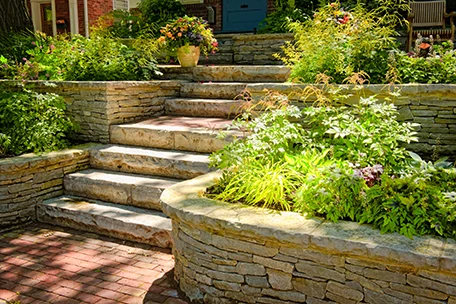We had a surprisingly mild winter, but that doesn’t mean that the ground didn’t freeze and effectively kill our gardens. It’s part of life, and now that the weather is starting to get a little bit warmer, we’re getting excited just thinking about getting started on our gardening and landscaping for the summer.
Getting started in March
There are tons of things that you can get started and get into the ground, now that the weather is starting to get a bit warmer. Don’t go crazy and plant all of your seeds into the ground, but instead, space things out and plant just a few things each month. This helps you manage your garden. As you go out each month to plant new things, you can give some TLC and maintenance to the things you planted in the previous months, in addition to the regular care they see during the week.
In March, you only want to plant things outside that can withstand the few potential freezes we can sometimes see in March and April. It’s also the perfect time to get started on tomato and pepper plants, indoors, to be transported outside once it’s warmer!
-Broccoli
-Beets
-Cabbage
-Corn
-Cucumbers
-Spinach
Plants to add in April
April is one of the best months for gardening. Your soil should be nice and warm, and the chances of your crops freezing is drastically minimized at this point. It’s not too late to get started on peppers and tomatoes, but you don’t want to get those planted any later than April if you want to be enjoying them all summer long. If you’re just getting those planted, you can plant them directly outside and don’t need to worry about planting them in pots inside.
-Beans
-Herbs
-Melons
-Onions
-Peas
-Summer Squash
Summer planting
There are plenty of fruits and vegetables that you can grow that you can plant later in the year. The beauty of this, is that gardening is something that you can enjoy from spring until late fall, until the ground really freezes over and you have to pot and rehome your plants. And even then, you can tend to the plants you brought inside, to keep them alive and ready to be re planted outdoors come next spring. Make sure to do a little research on each plant you choose to add to your garden, to make sure you plant it at the optimal time and know how much space to plan for in your garden!

